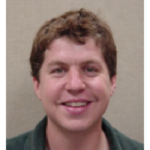Overview
Actuary consistently ranks in the top 10 of all US jobs. No graduate degree is required, and the role promises high salary and job-growth potential.
UVM’s Pre-Actuarial Certificate is for students with strong math skills and an undergraduate degree who want to pass the Actuarial Science certification exams and work as an actuary. Courses are also for professionals with strong quantitative backgrounds, college degrees, and an interest in this field.
Classes are specifically designed to prepare you for the Actuarial Science exams and are taught by instructors with academic backgrounds and industry experience.
Students often begin working as actuaries after passing the initial one or two exams. Companies often pay for employees’ remaining exams or offer salary increases for each exam passed.
Traditionally, actuaries worked in insurance. Now they’re working in healthcare, consulting, business, and government.
Curriculum
The flexible nature of this certificate allows you to enroll in a variety of courses, available online and on campus.
Courses in our program are available online and on campus. You will complete six courses, for at least 18 credits. The six courses are listed as follows:
- ECON 1400 Principles of Macroeconomics
- ECON 1450 Principles of Macroeconomics
- STAT 2510 Applied Probability
- MATH 2700 Fundamentals of Financial Math
- BUS 2800 Managerial Finance
- STAT 2830 Basic Statistical Methods 2
The following courses are offered in the Actuarial Science Certificate:
Business Administration: Managerial Finance(BUS 2800 A)Quick Course ReviewQuick View
CRN90141Credits3InstructorsMichael Tomas III- DatesDays of the WeekTimes
- to Tue Thu to
Business Administration: Managerial Finance(BUS 2800 B)Quick Course ReviewQuick View
This section is full – join waitlist
CRN93708Credits3InstructorsMichael Tomas III- DatesDays of the WeekTimes
- to Tue Thu to
Business Administration: Managerial Finance(BUS 2800 C)Quick Course ReviewQuick View
CRN90142Credits3InstructorsRichard Vanden Bergh- DatesDays of the WeekTimes
- to Tue Thu to
Economics: Principles of Macroeconomics(ECON 1400 A)Quick Course ReviewQuick View
This section is full – join waitlist
CRN95287Credits3InstructorsMarc Law- DatesDays of the WeekTimes
- to Mon Wed Fri to
Economics: Principles of Macroeconomics(ECON 1400 B)Quick Course ReviewQuick View
This section is full – join waitlist
CRN95286Credits3InstructorsJane Knodell- DatesDays of the WeekTimes
- to Mon Wed Fri to
Economics: Principles of Microeconomics(ECON 1450 A)Quick Course ReviewQuick View
This section is full – join waitlist
CRN95288Credits3InstructorsEmily Beam- DatesDays of the WeekTimes
- to Mon Wed Fri to
Economics: Principles of Microeconomics(ECON 1450 B)Quick Course ReviewQuick View
CRN95289Credits3InstructorsMd Ohiul Islam- DatesDays of the WeekTimes
- to Mon Wed Fri to
Mathematics: Fndmntls of Financial Math (online)(MATH 2700 OL1)Quick Course ReviewQuick View
This section is full – join waitlist
CRN93138Credits3InstructorsJoseph Kudrle- DatesDays of the WeekTimes
- to N/ASee Notes
Statistics: Applied Probability(STAT 2510 A)Quick Course ReviewQuick View
Only 2 Seats available, register soon!
CRN93175Credits3InstructorsKatherine Merrill- DatesDays of the WeekTimes
- to Tue Thu to
Statistics: Applied Probability(STAT 2510 B)Quick Course ReviewQuick View
CRN93176Credits3InstructorsJean-Gabriel Young- DatesDays of the WeekTimes
- to Tue Thu to
Statistics: Basic Statistical Methods 2(STAT 2830 A)Quick Course ReviewQuick View
CRN93177Credits3InstructorsKevin Beard- DatesDays of the WeekTimes
- to Tue Thu to
Business Administration: Managerial Finance(BUS 2800 A)Quick Course ReviewQuick View
This section is closed
CRN10069Credits3InstructorsMichael Tomas III- DatesDays of the WeekTimes
- to Tue Thu to
Business Administration: Managerial Finance(BUS 2800 B)Quick Course ReviewQuick View
This section is closed
CRN10070Credits3InstructorsRichard Vanden Bergh- DatesDays of the WeekTimes
- to Tue Thu to
Economics: Principles of Macroeconomics(ECON 1400 A)Quick Course ReviewQuick View
This section is closed
CRN14930Credits3InstructorsJane Knodell- DatesDays of the WeekTimes
- to Mon Wed Fri to
Economics: Principles of Microeconomics(ECON 1450 A)Quick Course ReviewQuick View
This section is closed
CRN10168Credits3InstructorsDonna Theresa Harrington- DatesDays of the WeekTimes
- to Mon Wed Fri to
Economics: Principles of Microeconomics(ECON 1450 B)Quick Course ReviewQuick View
This section is closed
CRN14947Credits3InstructorsMd Ohiul Islam- DatesDays of the WeekTimes
- to Tue Thu to
Economics: Principles of Microeconomics(ECON 1450 C)Quick Course ReviewQuick View
This section is closed
CRN14948Credits3InstructorsCatalina Vizcarra- DatesDays of the WeekTimes
- to Tue Thu to
Mathematics: Fndmntls of Financial Math (online)(MATH 2700 OL1)Quick Course ReviewQuick View
This section is closed
CRN12958Credits3InstructorsJoseph Kudrle- DatesDays of the WeekTimes
- to N/ASee Notes
Statistics: Basic Statistical Methods 2(STAT 2830 A)Quick Course ReviewQuick View
This section is closed
CRN12817Credits3InstructorsKevin Beard- DatesDays of the WeekTimes
- to Tue Thu to
Business Administration: Managerial Finance (online)(BUS 2800 OL1)Quick Course ReviewQuick View
This section is no longer enrolling
CRN61014Credits3InstructorsAndrew Prevost- DatesDays of the WeekTimes
- to N/ASee Notes
Economics: Principles of Macroeconomics (online)(ECON 1400 OL1)Quick Course ReviewQuick View
This section is no longer enrolling
CRN60003Credits3InstructorsErkmen Aslim- DatesDays of the WeekTimes
- to N/ASee Notes
Economics: Principles of Microeconomics (online)(ECON 1450 OL1)Quick Course ReviewQuick View
This section is no longer enrolling
CRN61395Credits3InstructorsEmily Beam- DatesDays of the WeekTimes
- to N/ASee Notes
Economics: Principles of Microeconomics (online)(ECON 1450 OL2)Quick Course ReviewQuick View
CRN60861Credits3InstructorsCatalina Vizcarra- DatesDays of the WeekTimes
- to N/ASee Notes
Mathematics: Fndmntls of Financial Math (online)(MATH 2700 OL1)Quick Course ReviewQuick View
This section is no longer enrolling
CRN61287Credits3InstructorsJoseph Kudrle- DatesDays of the WeekTimes
- to N/ASee Notes
Statistics: Applied Probability (online)(STAT 2510 OL1)Quick Course ReviewQuick View
This section is no longer enrolling
CRN61294Credits3InstructorsKatherine Merrill- DatesDays of the WeekTimes
- to N/ASee Notes
Statistics: Basic Statistical Methods 2 (online)(STAT 2830 OL1)Quick Course ReviewQuick View
This section is no longer enrolling
CRN61295Credits3InstructorsKatherine Merrill- DatesDays of the WeekTimes
- to N/ASee Notes
Tuition
Tuition rates for the academic year are published online each semester on the Student Financial Services website.
Careers
Being an actuary is a desirable career with relatively high pay and comfortable working conditions. It is a desirable occupation for career changers, displaced workers, unemployed and underemployed individuals with strong quantitative skills. Actuaries need a Bachelor’s degree, and students must complete coursework in economics, applied statistics, and corporate finance, as well as pass a series of exams to become certified professionals.
The work of actuaries is essential to the insurance industry. Actuaries analyze the financial costs of risk and uncertainty. They use mathematics, statistics, and financial theory to assess the risk that an event will occur and then help businesses and clients develop policies that minimize the cost of that risk.
To find out more about becoming an actuary please visit http://www.beanactuary.org/
VA Benefits
The University of Vermont is able to certify VA benefits for this program. If you intend to use VA benefits for this program, please apply to the program and contact UVM’s Veterans Affairs Coordinator, David Carlson, via email at dcarlson@uvm.edu or by phone at (802) 656-0581 to inform the university of these intentions.
Exam Preparation
Resources and Links to Prepare for the Actuarial Exams
To become an actuary, you must pass a series of certification exams.
For information about preparing for and taking the actuarial exams, visit these websites:
Actuarial Outpost: The largest social networking site specifically made for actuaries, this site includes a discussion forum, wiki, blogs, resources, and links, including sample exams, to help you prepare for actuarial exams: Exam P, Exam FM, Exam M (MLE and MLC), Exam C, SOA Course 5-8, CAS Exams and Enrolled Actuary exams.
Casualty Actuarial Society: The professional organization’s site offers information on gaining admission to the society, taking actuarial exams (Exams 1 through 6), pursuing continuing education, attending conferences and more.
Society of Actuaries: The professional organization’s site offers information on becoming an actuary, taking exams, exploring and conducting research, finding jobs, and more. It includes information on everything you need to know about attaining the ASA (Associate of the Society of Actuaries) and FSA (Fellow of the Society of Actuaries) designations and the CERA (Chartered Enterprise Risk Analyst) credential.
Faculty
Our faculty members bring many years of business and teaching experience to UVM’s Professional Actuarial Science Sequence. They have created a curriculum that is mapped to the certification exams in Actuarial Science. Throughout coursework, you will study material that is used on exams, allowing you to become familiar with the content and have more potential for success.
Our primary instructors include:
FAQ
Actuarial Science is a desirable field for career changers who possess strong quantitative skills. Actuaries need a Bachelor’s degree and students must complete coursework in economics, applied statistics, and corporate finance, as well as pass a series of exams to become certified professionals.
Transitioning to actuarial careers takes commitment. The first few years for entry-level actuaries can be demanding, with both work and study taking large amounts of time. Most companies give their entry-level employees time on the clock to study, but it is also expected that a large majority of the study time will be done off the clock.
During the first couple of years in actuarial sciences you may find yourself working and studying for many hours
There are certain individuals who are done studying and taking tests once they reach an Associate Status, while others move towards the Fellow Status, based on their interests or career goals. It can take about 3 to 5 years to obtain an Associate Status and up to another 3 to 5 years to obtain Fellow Status. To learn more about the different levels of status in Actuarial Science, please visit the Society of Actuaries website here: https://www.soa.org/member/
Visit Student Financial Services for current tuition and fees. You can also review options for discounts, grants, loans, scholarships, and more here.
UVM’s Actuarial Science Certificate prepares students to take the first two actuarial exams. There are two courses in particular that we recommend that students take as a part of their preparation for the P/1 and FM/2 exams.
STAT 2510/Applied Probability is recommended for students preparing for the P/1 exam. MATH 2700/Fundamentals of Financial Mathematics is recommended for students preparing for the FM/2 exam.
There are other exams beyond the P/1 and FM/2, but these are generally not taken until you have a few years of experience in the field.
You can visit the websites below for more information on the exam process:
The Validation by Educational Experience (VEE) Credentials are something that you can apply for once you have passed at least two actuarial exams and are working in the field of actuarial sciences. The following courses available through UVM’s Actuarial Science Certificate are designed to help students qualify for these credentials:
EC 1400/Principles of Macroeconomics and EC 1450/Principles of Microeconomics qualify students for the Economics VEE Credit. Both courses are required.
STAT 2830/Statistics for Business qualify students for the Applied Statistical Methods VEE Credit.
BUS 2800/Managerial Finance qualify students for the Managerial Finance VEE Credit.
For more information about the VEE credentials and the qualification process, please visit the Society of Actuaries’ webpage here: https://www.soa.org/education/exam-req/edu-vee.aspx
In general, students may take the courses in the Actuarial Science Certificate in any order they wish. It is important to note, however, that some courses do have prerequisites (please see “What prerequisites do I need?” below).
Most students will choose to start with STAT 2510/Applied Probability or MATH 2700/Fundamentals of Financial Mathematics as they begin to prepare for the P/1 and FM/2 exams. Please note that the exams themselves can be taken in any order. Students do not have to pass the P/1 exam before taking the FM/2 exam.
Once students have passed their first two exams, they can then continue with the other courses in the certificate in order to qualify for the Validation by Educational Experience (VEE) Credentials (please see “What are the Validation by Educational Experience (VEE) Credentials” above).
Other students may choose to take the VEE Credential courses at the same time as the two exam prep courses. For more information about an academic plan that will work best for you, please contact a program advisor at learn@uvm.edu or at 1-800-639-3210
Students wishing to take STAT 2510/Applied Probability and MATH 2700 /Fundamentals of Financial Mathematics to prepare for the P/1 and/or FM/2 exams need to have taken up through Calculus II in order to meet the course prerequisites. If students are not ready for Calculus, they can begin with College Algebra or Pre-Calculus. At UVM, students can fulfill these requirements through one of two sequences:
- MATH 1012/College Algebra > MATH 1212/Fundamentals of Calculus I > MATH 1224/Fundamentals of Calculus II
- MATH 1034/Pre-Calculus > MATH 1234/Calculus I . MATH 1248/Calculus II
While we do our best to offer the necessary prerequisites online, not all of the above courses may be available online every semester.
Students wishing to take the P/1 exam should take STAT 2510/Applied Probability and then plan to take an extra four weeks to prepare for the exam through self-study and practice problems.
Students wishing to take the FM/2 exam should take MATH 2700/Fundamentals of Financial Mathematics and then plan for an extra four weeks or more to prepare through self-study and practice problems before taking the exam. A little more time may be required to prepare for the
FM/2 exam because of the wide range of material that it covers.
It is recommended to do enough practice problems so that the different types of problems become familiar and solution methods become intuitive.
There are a lot of practice problems available online. Students can also purchase exam prep books.
The total preparation time varies by student, but most students will spend around 500 hours preparing for the two exams.
Please note that it is not recommended to study for both exams at once.
According to the Bureau of Labor Statistics Occupational Outlook Handbook, the employment of actuaries is projected to grow 23% from 2022 to 2032, much faster than the average for all occupations.
Students who have passed at least one or two actuarial exams and have had an internship should have the best job prospects for entry-level positions.
For more information, please visit the Bureau of Labor Statistics website.
Students are able to take the exams all over the U.S. and the world at Prometrics testing centers. Find a testing center and exam schedules.
Please submit this completion form after you have received your final grades for the program. Once your request has been reviewed and successful completion of the program has been confirmed, a certificate of completion will be emailed to you.
International students are welcome to participate in the Actuarial Science Certificate courses that are offered online. However, it is important to note that participation in the certificate does not qualify students to receive an invitation letter or any other documentation from UVM to travel to the United States for the purposes of the program.
The University of Vermont is able to certify VA benefits for this program. If you intend to use VA benefits for this program, please apply to the program and contact UVM’s Veterans Affairs Coordinator, David Carlson, via email at dcarlson@uvm.edu or by phone at (802) 656-0581 to inform the university of these intentions.
Advising and Student Support
You have the goal; we’ll help you achieve it
We are dedicated to helping you access UVM. It is our role to get to know your experience and goals, assist you in choosing courses, guide you through registration, and serve as your resource throughout your time at UVM.
Curious if your past college credits apply at UVM? Want to understand where a program will take you after completion? Looking for resources for financial aid, tutors, or UVM policies? We’re here to help.




